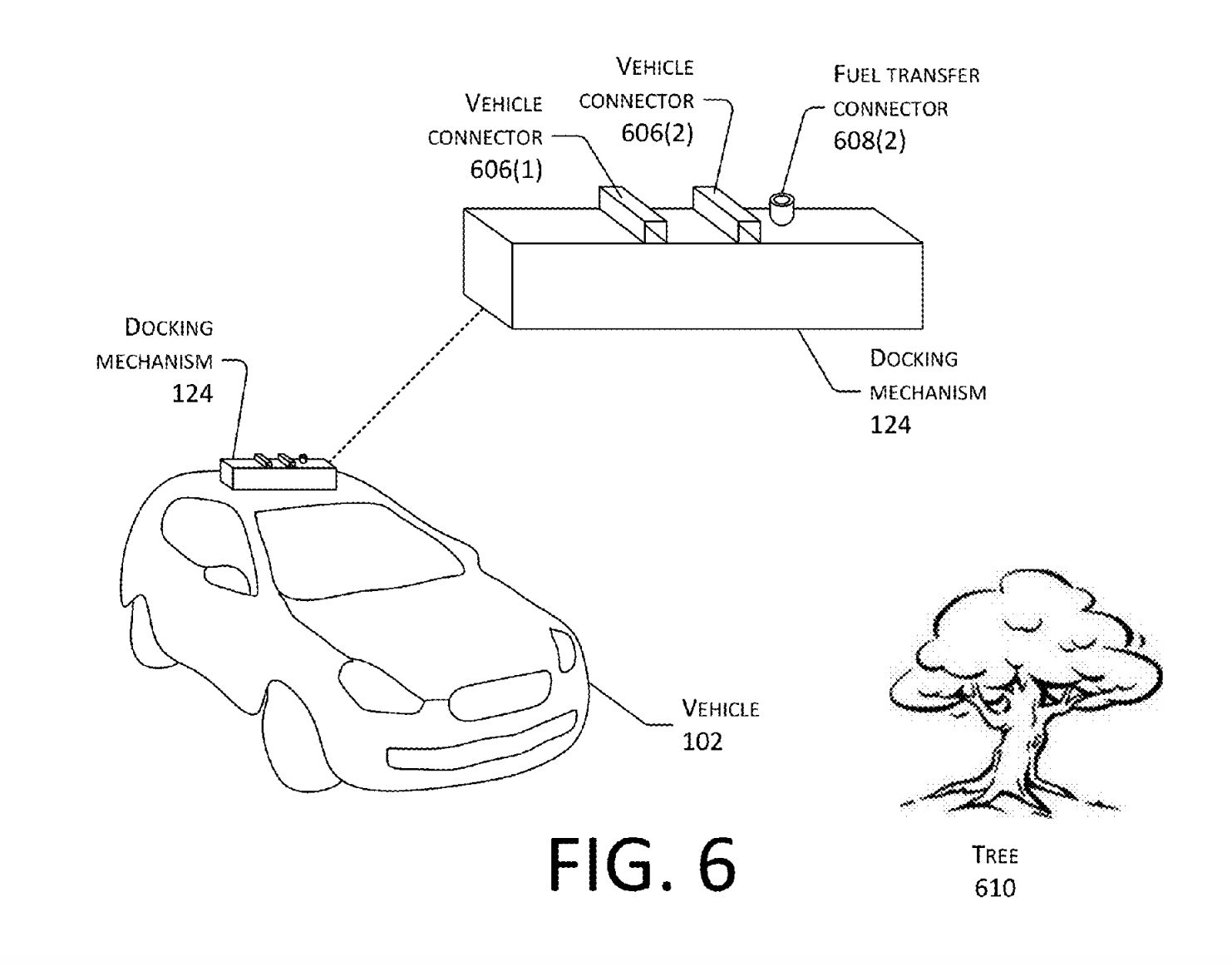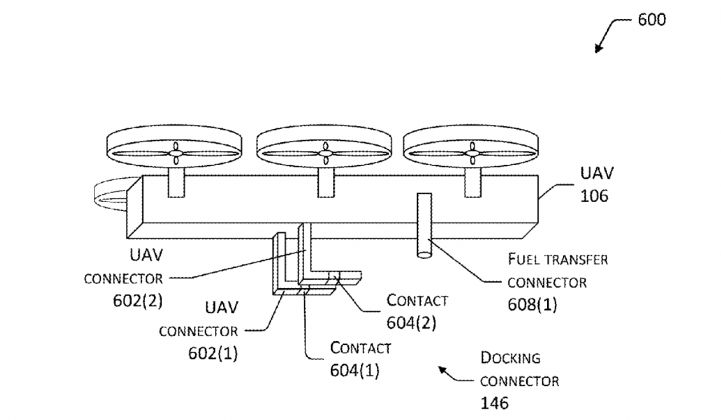The U.S. Patent Office recently granted Amazon a patent for roving drones that can latch onto electric vehicles and extend their range with an infusion of energy.
The online powerhouse already sells home charging stations, Tesla touch-up paint and biographies of Elon Musk. But this patent makes its link to the electric-vehicle market much more tangible. And it has the potential to solve several persistent problems in the electric vehicle market: charging infrastructure and range anxiety.
Charging infrastructure has been growing in dense urban areas, particularly in places like California, but vast swaths of the country still have limited resources. A mobile, mid-drive recharge offers a tantalizingly easy way around the quandary of searching for a charger while road tripping through remote stretches of landscape.
Even in city driving, it's possible to worry about getting stuck in traffic with a battery running low. Not so if a swarm of helpful battery bots can zip out of the sky and top you off.
A 2016 GTM Research report notes that electric-vehicle charging has already experienced tumult with company bankruptcies and cost barriers to implementation. The report lists companies such as Tesla, Siemens and General Electric as major players in the charging game.
Since that report was released, oil and gas major Royal Dutch Shell announced it will invest in smart charging stations, and cities and states have published a copious number of reports on how to improve charging infrastructure to encourage electric-vehicle use.
But few, if any, of these corporations and governments have direct and daily interaction with the public on the level of Amazon, a company which quite literally touches all aspects of many people’s lives (especially the wealthy, young urbanites who are more likely to have the funds and interest necessary to be early adopters of electric vehicles). That penetration is part of Amazon’s strategy -- and its success.
“We’ve had three big ideas at Amazon that we’ve stuck with,” founder Jeff Bezos has said. “They’re the reason we’re successful: Put the customer first. Invent. And be patient.”
The patent describes a process where Amazon’s drones can communicate with electric vehicles out on the road through servers that monitor energy usage and need.
Servers relay energy requests to drones, which would then be dispatched to meet vehicles on the road. The drones would authenticate the connection, attach to a vehicle connector on the roof or door and start fueling -- even if the car is in motion.

Run out of charge while looking at a diminutive tree? Amazon has you covered. (Detail from Amazon patent)
The whole process sounds technologically thrilling, as it is with the aircraft that pull off in-air refueling to stay aloft on a mission. In Amazon's version, there would be no human pilot handling the maneuver.
A similar process could also deliver traditional fuels, the patent notes. But the technology has more opportunity to disrupt electric-vehicle charging and dwarf the nearly 45,000 public chargers now installed in the United States.
The commercialization of this process is still a ways off. Would it come as part of an Amazon Prime subscription? How do you order one while driving? What's the range on the drones themselves?
However it goes, this wouldn't be Amazon's first foray into the advanced car space.
The patent comes a year after the announcement that Amazon’s virtual personal assistant, Alexa, would be featured in the models of three Ford electric cars. Maybe that answers the practical question of ordering a refill: "Alexa, send me your nearest drone battery."
And just months ago, Amazon bought into hydrogen fuel-cell forklift company Plug Power. Electric car pioneer Elon Musk, for one, has long derided hydrogen fuel cells, but their charge time is much shorter than that of currently available batteries.
In recent years, lithium-ion battery costs have fallen precipitously, while hydrogen remains quite an expensive alternative. The new patent may demonstrate that Amazon hopes to stake out a piece of the traditional battery market, as well.
Amazon's true intentions, though, are hard to surmise because of its tight-lipped culture. “Jeff Bezos’ e-commerce and cloud-storage giant is opaque,” Farhad Manjoo wrote in August of last year for The New York Times. “It values surprise.”



